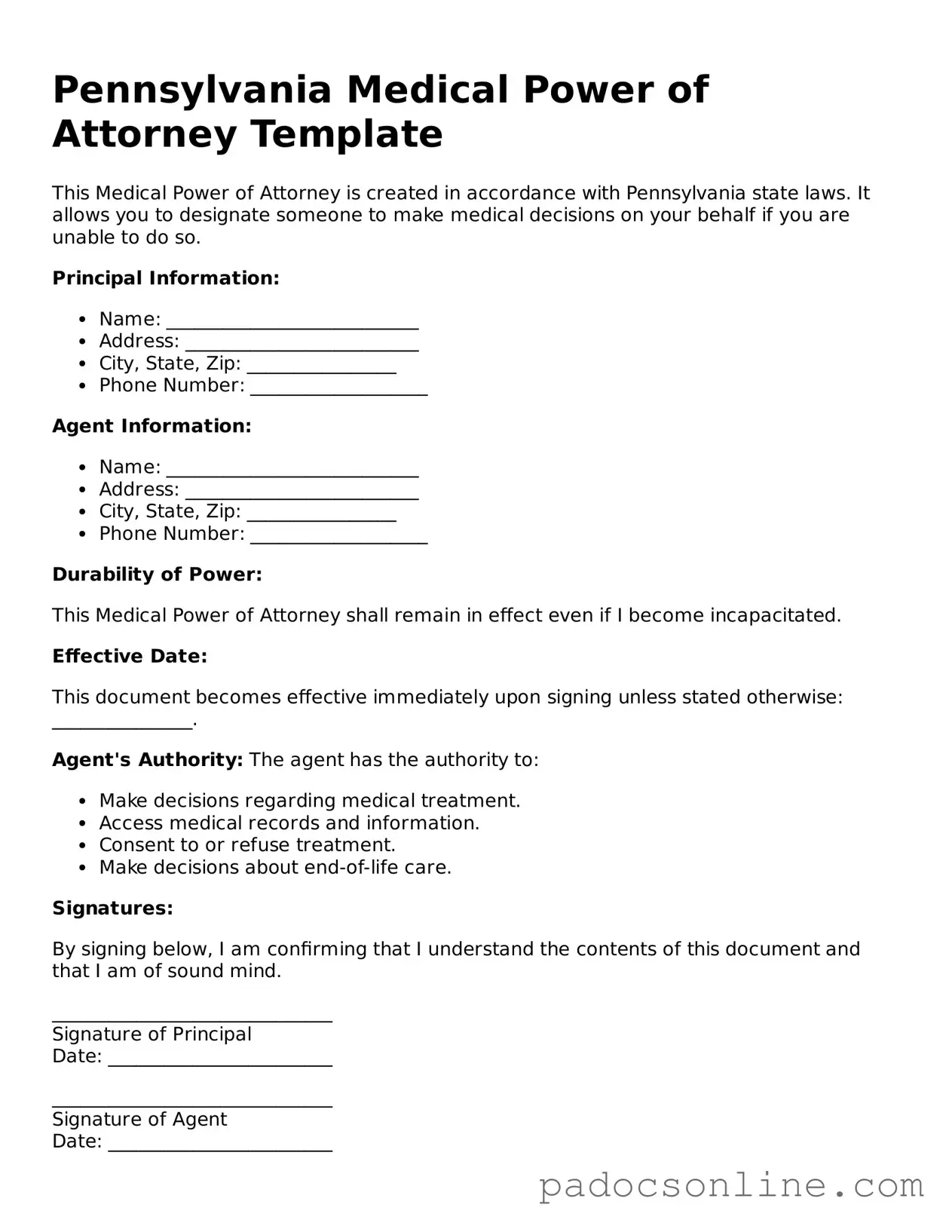Filling out the Pennsylvania Medical Power of Attorney form can be straightforward, but many people make common mistakes that can lead to complications. One frequent error is not clearly identifying the agent. The agent is the person who will make medical decisions on your behalf if you are unable to do so. Ensure you provide their full name and contact information. Ambiguity can lead to confusion and delays in critical situations.
Another common mistake is failing to specify the powers granted to the agent. The form allows you to outline what decisions your agent can make regarding your medical treatment. Omitting this detail can leave your agent unsure about their authority, potentially leading to unwanted outcomes. Be explicit about what decisions they can make.
Many individuals neglect to sign and date the form properly. A signature is essential for the document to be valid. Ensure that you sign the form in the presence of a notary or witnesses, as required. Missing a signature can invalidate the entire document, leaving your medical wishes unfulfilled.
In addition, people often forget to review the completed form thoroughly. It’s easy to overlook errors or omissions. Before submitting the form, double-check all information for accuracy. This simple step can save time and prevent future issues.
Another mistake involves not updating the form when circumstances change. Life events such as a divorce, the death of an agent, or changes in health can necessitate updates. Regularly review and revise your Medical Power of Attorney to ensure it reflects your current wishes and circumstances.
Some individuals mistakenly think that a Medical Power of Attorney is the same as a Living Will. While both documents relate to healthcare decisions, they serve different purposes. A Living Will outlines your preferences for end-of-life care, while a Medical Power of Attorney designates someone to make decisions for you. It’s important to have both documents in place for comprehensive planning.
People also often fail to communicate their wishes to the designated agent. Simply filling out the form is not enough. Discuss your medical preferences and values with your agent to ensure they understand your desires. This conversation is crucial for them to advocate effectively on your behalf.
Lastly, many forget to provide copies of the completed form to relevant parties. It’s important to share the Medical Power of Attorney with your healthcare providers and family members. This ensures that everyone involved in your care is aware of your wishes and the authority of your agent. Without copies, your instructions may not be followed when they matter most.
